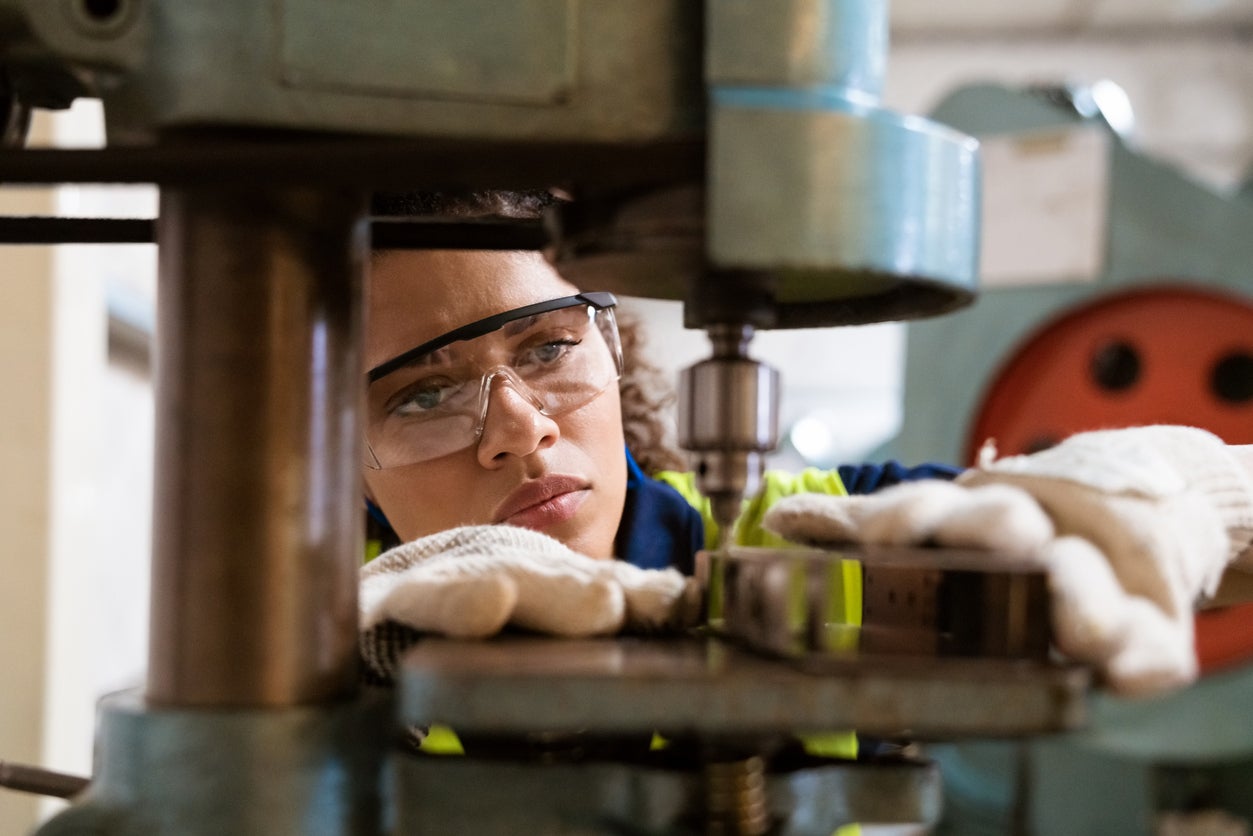We have a rare opportunity to change the way our education system functions and who it works for – we must grasp it
The government’s words today as they launch a white paper to ‘revolutionise’ post-16 education are welcome – it is clear that, finally, those who don’t go to university are starting to become a policy priority


Your support helps us to tell the story
From reproductive rights to climate change to Big Tech, The Independent is on the ground when the story is developing. Whether it's investigating the financials of Elon Musk's pro-Trump PAC or producing our latest documentary, 'The A Word', which shines a light on the American women fighting for reproductive rights, we know how important it is to parse out the facts from the messaging.
At such a critical moment in US history, we need reporters on the ground. Your donation allows us to keep sending journalists to speak to both sides of the story.
The Independent is trusted by Americans across the entire political spectrum. And unlike many other quality news outlets, we choose not to lock Americans out of our reporting and analysis with paywalls. We believe quality journalism should be available to everyone, paid for by those who can afford it.
Your support makes all the difference.The vaccine programme means that the end of the pandemic is at least in sight. This is rightly top of the government’s agenda. And today, so too is “building back better” through the untapped power of further and technical education.
The nation has needed a relentless focus on updating skills for a very long time. The economic impact of Covid-19 means that thousands are worried about losing their jobs in the coming months, while the future of many businesses is in peril. Unemployment has risen and will rise further; key industries like hospitality and the Arts are not recruiting; and those on prolonged furlough will need their own skills updating for a different pattern of work. This – and the urgent need to shift to a net-zero economy of the future – requires a fundamentally different approach to education and skills.
It is clear that, finally, those who don’t go to university – the majority of the population – are starting to become a policy priority. The government’s words today as they launch a white paper, “Skills for Jobs”, to “revolutionise” post-16 education are welcome and important. Colleges should be a blend of real-world experience, innovative thinking about business, and qualifications and flexible training that will equip the workforce to adapt as the world changes.
Twenty years ago, I endeavoured to spell out in the policy paper, “The Learning Age”, that today’s students should also be the students of the future. The initiatives to support lifelong learning from the government today – if implemented properly – could help to unleash the talent of more people, of whatever age.
Crucially, we need this ambition to be realised in the long-term, which is why seeking a consensus across the political spectrum matters to the future of our country. This needs to be backed by the long-term investment that the sector so urgently requires.
Through these actions, the government can tell vocational and technical education students of all ages that they matter. They can express to parents that their children attending a local college is something to aspire to – an equally prestigious route as university. They can show that the government takes adult learning seriously to meet the future of work. And they can give confidence to British businesses and industries needing to plug skills gaps and increase productivity and innovation. All of this is critical if the government is really serious about “levelling up”.
What also matters is action and bottom-up, as well as top-down, leadership. The sector has been demonstrating this in its collaborative approach to the pandemic – working with schools, universities, businesses and community organisations. The Independent Commission on the College of the Future has been showing a collective ambition for colleges to deliver on a new vision for the sector – and for the role they must play for people, productivity and place.
Moments like this rarely come around. This is a timely and important opportunity to fundamentally shift the dial in the way our education system functions and who it works for. It is significant that we have a Conservative government making arguments that many of us have been making for a very long time – and it is something I welcome.
To deliver this ambition in our education and skills system, we need the government to be in this for the long haul. Whoever is leading the Department for Education in three, 12 or 24 months’ time must take forward this mantle – and whoever is in No. 10 in five years’ time must continue to do so, too. Such a task requires meaningful consensus and concerted action, and it is my fervent hope that this is what we will see.
The devil will certainly be in the detail and delivery, but today the future looks brighter for the people, communities and businesses that colleges work so hard to support. Colleges are in the spotlight as a vehicle to “build back better”. This focus and commitment must not be lost over the coming months and years. The prosperity and wellbeing of the nation depends on it.
David Blunkett is a member of the House of Lords and a former education and employment secretary, home secretary and work and pensions secretary




Join our commenting forum
Join thought-provoking conversations, follow other Independent readers and see their replies
Comments